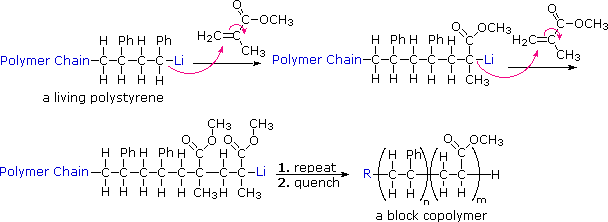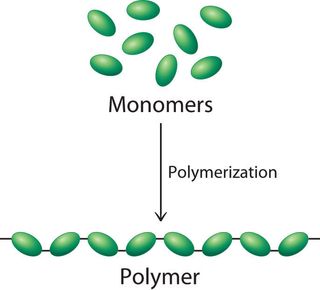Taking Advantage Of the Power of Polymers: Comprehending the Comprehensive Usages and Favorable Effects
Polymers, with their varied chemical frameworks and properties, have become vital in many markets, transforming the method we communicate with products every day. From the packaging that safeguards our food to the fibers that dress us, the applications of polymers are vast and differed. Beyond their ubiquitous presence exists a deeper understanding of their positive effects, getting to much past simple comfort. As we check out the extensive uses polymers and their role in shaping a more sustainable, efficient, and innovative future, it comes to be evident that their potential is as substantial as the particles themselves.
Versatility in Everyday Products
One of the most typical uses of polymers is in packaging products. In addition, polymers play an essential duty in the automotive industry, where they are made use of in making lightweight elements that improve fuel efficiency.
Naturally degradable polymers are made use of in stitches and implants, decreasing the threat of negative reactions in clients. In the building and construction market, polymers are incorporated right into paints, adhesives, and insulation products, improving resilience and power effectiveness.
Sustainability in Product Innovations
With the ongoing focus on ecological consciousness and resource efficiency, the emphasis changes in the direction of sustainability in product developments, showing a growing commitment to accountable manufacturing methods across numerous sectors. In recent years, there has been a notable surge in the growth of lasting materials, specifically within the realm of polymers. These cutting-edge materials are developed to decrease ecological effect throughout their whole lifecycle-- from sourcing raw products to disposal or recycling.
One considerable facet of sustainability in product innovations is the principle of biodegradability. Naturally degradable polymers have actually gathered attention for their capacity to damage down normally into safe results, minimizing waste and pollution. Furthermore, the use of recycled polymers originated from post-consumer or post-industrial resources is getting grip as a way of advertising a circular economic situation and decreasing dependence on virgin materials.

Enhancing Efficiency in Engineering
Enhancing efficiency in design needs a meticulous integration of innovative modern technologies and precise methodologies to enhance functionality and performance in various industrial applications. Polymers play an important role in this undertaking, supplying a large range of benefits that enhance the performance of design products and parts.
One secret aspect of enhancing efficiency in engineering is the capability of polymers to improve resilience and stamina. By integrating polymers into design layouts, producers can produce lightweight yet durable navigate to this site frameworks that can hold up against high levels of stress and stress. This characteristic is particularly valuable in sectors such as aerospace, vehicle, and building and construction, where the demand for solid yet lightweight products is extremely important.
Additionally, polymers can additionally boost efficiency by giving thermal and chemical resistance, minimizing friction, and enhancing electric conductivity. These buildings make polymers ideal for a variety of engineering applications, including seals, bearings, coatings, and digital components. Polymers. By utilizing the distinct buildings of polymers, designers can optimize the performance of their designs and create Go Here much more effective and dependable products
Effect on Clinical Improvements
The integration of sophisticated polymer technologies has actually considerably added to cutting edge improvements in the clinical field. Polymers have played an important role in contemporary clinical advancements, varying from medication distribution systems to tissue design. One of the essential areas where polymers have actually made a considerable impact remains in the growth of eco-friendly stitches and implants. These polymers can be customized to weaken at a details rate, enabling far better injury recovery and reducing the demand for additional surgical treatments to get rid of implants.
Additionally, polymer-based products are significantly being used in medical devices such as catheters, stents, and prosthetics as a result of their biocompatibility and adaptability. For instance, polymer finishings on clinical devices can prevent infections and enhance overall patient results. Additionally, improvements in nanomedicine have enabled the usage of polymer nanoparticles for targeted drug delivery, boosting the efficiency and reducing negative effects of numerous medications
Role in Environmental Conservation

Moreover, polymers are used in water treatment processes, aiding in the filtration and recycling of water resources. This helps in minimizing water pollution and making certain access to clean water for both human usage and environmental wellness. Polymers also contribute in farming through the advancement of naturally degradable composts and controlled-release plant foods, promoting sustainable farming practices.
Conclusion
Finally, polymers have confirmed to be a flexible and important product in different industries, from day-to-day items to engineering and clinical developments. Their effect on sustainability, performance improvement, and environmental conservation is significant. Recognizing the considerable uses polymers emphasizes their relevance in driving innovation and progression in numerous areas. The continued exploration and use of polymers will most certainly cause additional developments and positive effects on culture.